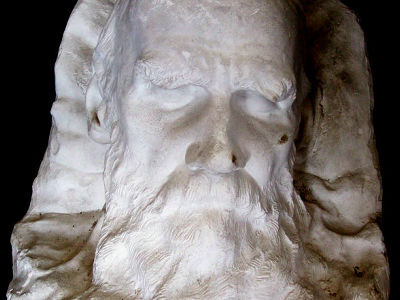Research results that `` war will be prolonged if the president is a narcissist ''

There are various reasons why wars are triggered and why they last longer, but one of the factors is the existence of leaders who decide the national policy. A study investigating the character of successive American presidents and the duration of the war in which the United States participated showed that there is a relationship that `` if the president is a narcissist, the war tends to be prolonged ''.
Looking Like a Winner: Leader Narcissism and War Duration - John P. Harden, 2022
US presidential narcissism linked to longer wars
https://news.osu.edu/us-presidential-narcissism-linked-to-longer-wars/
There's An Intriguing Link Between US Presidents And The Wars They Wage : ScienceAlert
https://www.sciencealert.com/theres-an-intriguing-link-between-us-presidents-and-the-wars-they-wage
At the time of the research, he was enrolled in a doctoral course at Ohio State University, and at the time of writing the article, he was an assistant professor of political science at Ripon College . examined gender.
Harden evaluated the personalities of a total of 19 presidents, from William McKinley , who was president of the United States in 1897, to George W. Bush, who served as president until 2009, based on historical data sets . The researchers who created the dataset used the knowledge of historians and experts who have written about presidents to complete a personality test based on more than 200 questions. He analyzed five items related to narcissism: strength of assertion, tendency to seek excitement, humility, compliance, and honesty.

The analysis showed that
On the other hand, the least prone to narcissism was William McKinley (1897-1909), followed by William Taft (1909-1913) and Calvin Coolidge (1923-1929).
Mr. Harden defined the war in this research as ``a sustained battle between two countries that killed more than 1,000 people a year'' and picked up 11 wars in which the United States was involved during the research period. We examined the correlation with the president's narcissistic tendencies.
As a result, American presidents with low narcissistic tendencies, such as McKinley and Eisenhower, tended to put national interests first and end the war as soon as possible. For example, after taking office in 1953, President Eisenhower moved to end the stalled Korean War . On the other hand, Roosevelt and Nixon, who tend to be narcissistic, struggled to separate their own needs from the interests of the state, Harden argues, prolonging the war.
Overall, the 11 presidents with below-average narcissism scores averaged 136 days in the war, while the eight presidents with above-average narcissism scores averaged 613 days. I kept the war going. Of course, the continuation of the war depends on factors other than the personality of the president. But even if Mr. Howard controls factors such as the terrain where the war is taking place, whether the president started the war or inherited it from his predecessor, the president's military experience and tenure, the balance of power in Congress, and so on, the president will still be the president. narcissism was associated with the lengthening of the war.

As for why the president's narcissism affects the number of days the war lasts, Mr. Howard said, 'I expect great results at the end of the war,' 'I am confident in my country's combat capabilities and in my abilities,' and 'I am confident in my own self-image.' In order to protect them, it is difficult for them to admit their own mistakes, and they take the wrong strategy.”
Howard said presidents don't always look rationally at all evidence in wartime, and some presidents are more concerned with their own image than national interests. “Presidents with narcissistic tendencies spend more time worrying about their image than other presidents.” “More narcissistic presidents tend to end wars only if they can say they won.” 'These motives, especially the desire to protect an inflated self-image, cause wars to prolong unnecessarily.' rice field.
Related Posts:
in Note, Posted by log1h_ik







